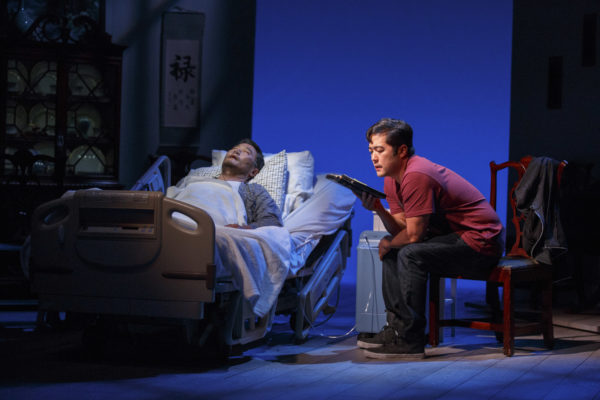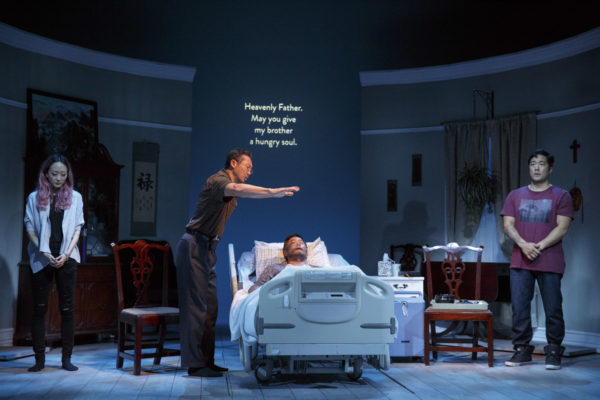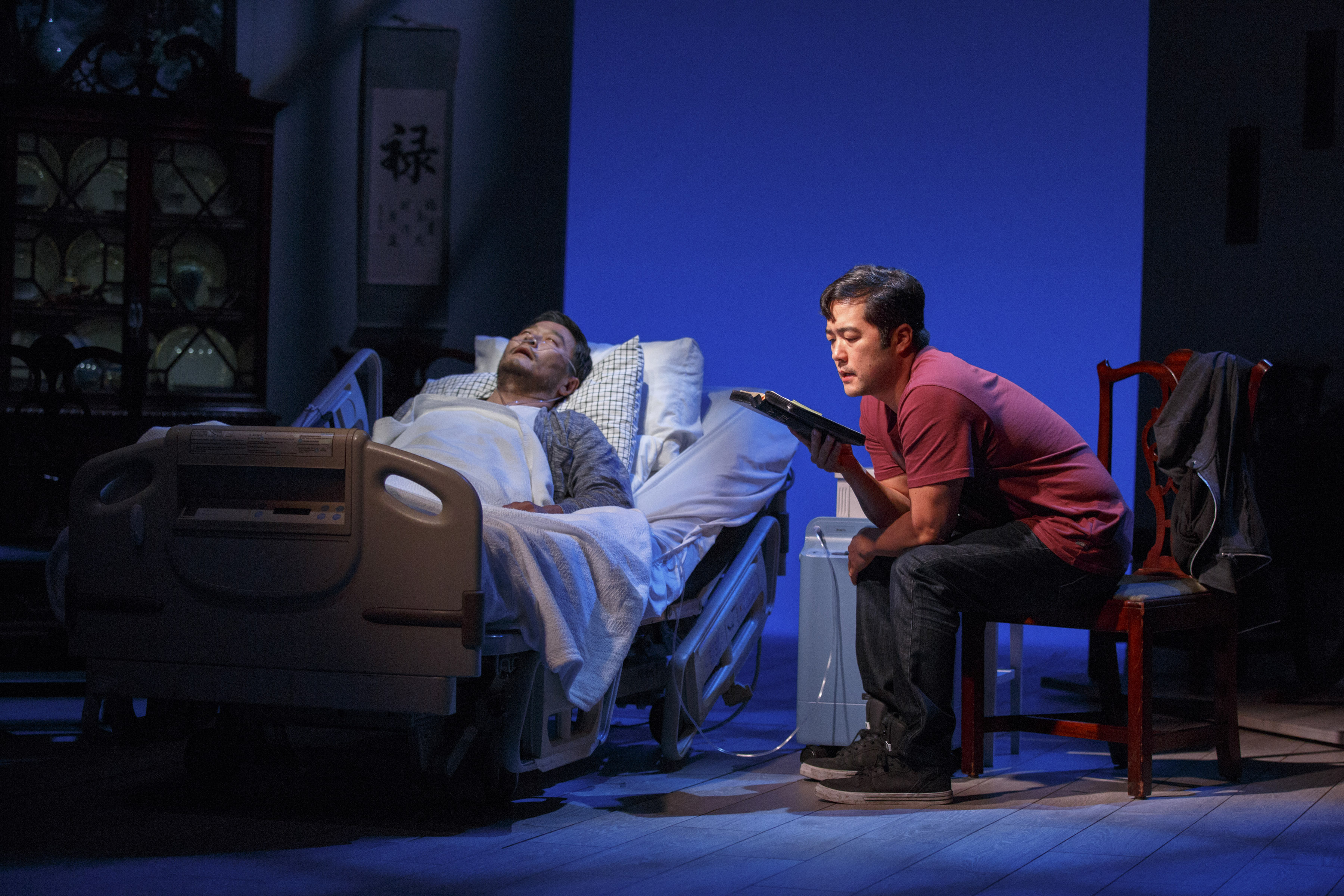
Stephen Park & Tim Kang, Photo by Joan Marcus
Aubergine, a new play written by Julia Cho, opens today at Playwrights Horizons in New York City. Running through October 2, it’s an emotional story about family, death, and food. Ray’s father is home on hospice with his son Ray, a first-generation Korean American chef, who is struggling with how to manage and how to cope. To notify his father’s brother, he calls on his ex-girlfriend Cornelia to tell him in Korean. When his uncle unexpectedly shows up with a soup recipe, Ray is thrown into new challenges–including a live and very expensive turtle, his own relationship with his father and career as a chef, and an uncle who speaks a different language. Rounding out those who care for Ray’s father is Lucien, the hospice worker, who offers his own perspective on death and the dying, and whose lines provide the play’s title.
Full of depth, Aubergine is a quiet play in many ways, yet it is incredibly moving. Cho deftly deals with that most human of events–dying and death–without being heavy handed. And through it all, food, its meaning flooding memories and interactions. I should say too that this is not a depressing play, despite dealing so intimately with death. “Catharsis” is the word Playwrights’ artistic director uses to describe the feeling. I would call it a kind of fullness, the feeling the audience carries out the door with them.
Throughout the play, Cho grapples with the turmoils of the living. Ray’s father has only a few lines, and for most of the play, he lies in his hospital bed in the dining room. Much falls to the part of Ray, expertly played by Tim Kang whose gestures and facial reactions captured the confusion and other reactions one spirals through when facing a loved ones’ death. When Uncle arrives explaining why Ray must make turtle soup for his father in a steady stream of Korean, subtitles appear on the back of the stage (if Cornelia is not translating). The audience understands where Ray does not. Yet there is that emotion still captured, that goes beyond literal understanding. And Uncle’s own method of grappling with his brother’s illness provides an apt counterpoint to Ray’s consternation and confusion. Added is Lucien’s calm goings-on to take care of Ray’s father in his last days. He tells Ray:

Sue Jean Kim, Joseph Steven Yang, Stephen Park & Tim Kang, Photo by Joan Marcus
We hold the hands of the dying. But we are not the one holding their hands. They are the ones holding ours.
In lieu of telling you all the brilliant ways food is worked into this play, in ways that provide depth and insight into our relationships with family, I’d like to make this personal for a moment. This past year, we buried my grandfather. It is undeniably different from what unfolded in Aubergine, and yet so much was familiar with the conversations and emotions my family went through. Different generations, the immigrant experience, lost in translation, gained in translation, family dynamics…what hospice means for the dying and the living. Ray’s processing was so nuanced and immediately relatable. Flawed, perhaps, but whose response to death isn’t? We feel so deeply for his process and his despair, anger, hope, need, and love.
I will always remember my grandfather’s love of Peking Duck skin and French dressing (not together). I thank Aubergine for giving me a space to remember.
Tickets and more info on the Playwrights Horizons website, www.PHnyc.org








